Summer season is here
With the weather getting warmer we are starting to see more cars with A/C issues. Here is a Peugeot RCZ […]
READ MORE -
Mercedes have been ordered by the German government to immediately recall 700,000 Vito vans, C class and GLC SUV’ due to prohibited shutoff devices . Mercedes are said to have designed software solely to manipulate the CO2 emission in order to pass diesel emission regulations for their vehicles. As a result they are putting there customers at risk from harmful poisonous diesel fumes.
This is not the first time Mercedes have had to issue recalls. In 2016 Mercedes suffered from 2 major issues of defective airbag control units along with suspected power steering failure on the C class.
In 2015 recalls were also issued for concerns around a rubber seal that could have potentially caused a fire in the CLS and E class affecting almost 150,000 vehicles on this occasion.
The one positive to take from this is that Mercedes did put there hands up to these issues whereas most manufactures have often left it till last minute in the hope the issues would never be reported on.
So, on this recent occasion, why did Mercedes take so long to come forward on this required recall?
Put simply, the costs of issuing a recall are immense. Particularly in the current client where profit margins in the motor industry are under extreme competitive pressures. That’s why Mercedes had been in intense negotiations with the German government to prevent a recall because of the outlay involved in fixing the defeat devices, which involves a major software update.
Issuing a recall is seen as taking responsibility but Mercedes did not want to take initial responsibility in an era where people are now concerned with the state of the environment and air quality. One other worry is that this issue could also affect future resale values, consequently causing problems in the used car sales and consumer finance market.
Basically, one might say that Mercedes knew what they were doing. Ultimately, they have risked poisoning there customers with dangerous diesel fumes and thought they could conceal the issue in the pursuit of profits. To put some numbers to it, this has cost them a figure in the region of almost £100 million. The knock on affect will ultimately be to there reputation. Would you trust Mercedes with a Diesel, or any of there motors for that matter?
The only saving grace for Mercedes in all of this, is that the Diesel-gate scandal that still rumbles on even know has proven that other leading car manufactures having also been up to know good!

Most people think they need to check their car or motor vehicle in the winter or when its MOT or service is due. However, throughout the year, its important that you take care of your motor vehicle to ensure it remains in good working. This way your motor will remain safe, reliable and at is most fuel efficient on the road
Having said that, many car owners neglect their vehicle, and this can result in poor running performance and accidents. Fortunately, there are basic checks and maintenance tasks you can carry out to keep your motor vehicle at is best.
It is important that your car is running on a good set of tyres and this will make sure that the car is driving safely.
Every 2 to 4 weeks it’s a good idea to check tyre pressure and your tread. This will ensure you stay safe and inside the legal limits for driving.
Every month or so, you should check your engine oil as vehicles its not uncommon for cars to use up to a litre of oil every 1,000 miles. Do not wait until the warning light comes on as damage may have already occurred by then so check that you are always in between the minimum and maximum amount (overfilling can also cause damage).
Experts recommend that you check your water and coolant every couple of weeks ensuring your coolant is between the minimum and maximum amount. You should always do this when the engine is cool. If you think its unusually low this could be a sign of a leak. Take it to your nearest garage
Lights
It’s worth checking your lights are in good working order at least every week or 2. You will usually find if you are driving a modern vehicle then you will just need to check your onboard computer. A warning light will normally appear. If not, check manually by cleaning any dirt of and make sure they are bright and clear on the road.
This is one of the simplest things to do. Simply keep an eye out for any damage such as cracks or chips. There have been numerous occasions in the past were people have simply not bothered to repair them and the chip has led to the windscreen smashing and causing accidents. Often your insurance will fix these for you without you losing any no claims either!
The wipers should always be cleaned whenever you clean your car to prevent smearing. Many motorists like to replace their wipers once a year and this is a good practice as they are cheap and easy to replace.
Screen wash
With the warm summer weather on the way, it becomes breeding season for the bugs and flies that love to hit your windscreen on those country roads. Before you know you will run out of screen wash from constantly clearing away the bugs.
As such, check and top up your screenwash on a weekly basis as it is required by law to work properly. It is particularly important to check on a regular basis if you drive in muddy conditions or if you are about to set off for a long drive.
Once a year you should take a look at the toolkit/emergency kit that you have to make sure that you have everything you need. Ideally this should include a spare wheel, locking wheel nut, a jack, water, food, warm clothing, a blanket etc.
Check that all of the electric work in the car on a weekly basis. This can be easy enough to do whilst you are driving or simply when you are parked – any problems should be fixed as soon as possible. Bring it in to Widnes Auto Electrical if you have any concerns
Here at Widnes Auto Electrical we’re fully aware of all of the problems/issues that can be encountered whilst dealing with the various different types of lighting on the inside and outside of your auto-mobiles. From headlights, to tail-lights to inside car lighting. We’re the best in the Widnes area at dealing with all of the kinds of Lighting Faults that you may encounter just by being a regular day-to-day driver. We however do offer an initial go-to piece of advice on how to deal with the menial lighting problems, as long as you’re fairly savvy when it comes to electrical equipment.
However, we understand that not all people are, and not all people have the time to spare to deal with issues like this. That’s why we do offer a service, and you can come in and we’ll help solve your problem through pure mettle, rather than the sweat off your back. So, if you are having any problems with the lighting with your car, then contact us, as soon as you possibly can, we don’t want to keep you off the road, and if you’re living in the Widnes area, then you should know that we’re the best around. Or if you would like to see what other Car Electrical services we provide then please click here
Your vehicle’s brakes are arguably the most important feature on your car, so if there’s a warning light flashing on your dash highlighting there’s something wrong with the braking system, it’s best to get it checked out right away.
If your engine warning light is illuminated, often it’ll be accompanied by some unusual symptoms – these could include a lack of power, as the car has gone into ‘safe’ mode to protect itself; an intermittent stuttering as you press the accelerator, caused by a misfire; or another fault which could alter the normal response from the engine.
Sometimes this can be down to something as small as a faulty electrical sensor, although sometimes it can be a larger mechanical issue. If your car’s engine warning light is showing, get a professional mechanic to look over it straight away, as driving around any longer could cause further, and potentially irreparable damage.
The invention of the airbag was a major step forward in vehicle occupant safety, so if your car’s isn’t working properly, get it seen to.
A faulty airbag potentially won’t go off in a crash, meaning you and your passengers won’t be as well protected from any potential injuries. The other possibility is that your vehicle’s airbag could deploy when you least expect it, giving you a nasty shock – or even actually causing an injury – and an expensive fix to put right.
If your car’s power steering warning light – often known as the EPAS light – is illuminated, it means there could be something wrong with the steering system.
If the system fails, the steering could go heavy, meaning more effort will be needed to make the car change direction. This can be an annoyance at low speed when you’re trying to manoeuvre, but a real risk at higher motorway speeds if you need to make a sudden lane change to avoid an obstacle.
Most modern diesel vehicles are fitted with a diesel particulate filter, which removes harmful soot from the exhaust gases to reduce emissions.
If this is faulty it’ll trigger a warning light and could not only mean you’re releasing a toxic cloud of black smoke every time you press the accelerator, but that you could be causing damage to your engine. Get this checked out straight away as DPFs can become blocked and can be expensive to replace.
Without any coolant, your car’s engine would get so hot it’d effectively ‘weld’ itself together. If you see the coolant light show up on your dashboard, it could mean coolant levels are running low, so check the gauge on the side of the coolant tank under the bonnet and top up if necessary.
In conjunction with a temperature gauge reading well into the red, it could mean your engine is overheating. This is either the sign of a larger problem – like a head gasket failure – or symptomatic of something less major, like a leak in the system somewhere, meaning you’re engine has run low on coolant and got too hot. Get it seen to as soon as possible to avoid a potentially expensive repair bill.
Just like your car’s water or coolant warning light, you might see an oil warning light flash up if oil temperature gets too high, the level is low or oil pressure too low. It’s the latter two you want to avoid at all costs.
Oil is what lubricates your engine, with the oil pump used to spray the fluid to all corners of your engine. If temperatures get too high, or even worse, level is low or oil pressure drops, the effectiveness of the lubrication can be reduced or lost all together.
The result? Expensive engine damage, so if you see this warning sign, stop and phone a professional right away.
Once the preserve of high-end, super-expensive luxury saloons, many more cars are fitted with tyre pressure monitoring systems today.
These systems can sense a deviation away from normal tyre pressures, signifying a puncture. Generally, the device will flash a warning light on the dashboard, highlighting you should take a look at your car’s rubber.
You should see your battery charge warning light when you first turn your car on, but if it doesn’t go out a few seconds after the engine starts, there could be a problem with your car’s electrical system.
This could be to do with a faulty alternator, faulty battery, a bad connection or damaged cabling somewhere in the engine bay. If your car isn’t charging its battery when moving (the job of the alternator), then you could eventually run out of electrical power and grind to a halt.
At worst, the light could be on due to an alternator drive belt braking. Other systems also use this belt – such as the engine coolant pump, or power steering – so the affects of a failure here could be compounded.
It’s not a game of connect four or warning light bingo – if your car’s dashboard is lit up like a Christmas tree, or even if there’s one, small blinking light on there, it’s important to get it checked out.
It could be something as minor as a faulty sensor or a broken wire, but it could be something more serious that, if left unchecked, will cause lasting and expensive damage to your vehicle.
Regular servicing and maintenance can help protect your vehicle from firing off a fault, so keep a close eye on your car and its warning lights to save you money and avoid those expensive garage bills.
Have you got a warning light illuminated, or have you previously had a problem with your car signified by a telltale sign on the dashboard? How did you go about fixing it and what advice would you give to other motorists with a dash full of LED warnings?
When you bring your vehicle to us at Widnes Auto Electrical, to check electrical faults we will inspect your cars on-board computer by plugging in our diagnostics tool. This will allow us to check the vehicles electronic control unit. This will enable us to identify any electrical faults that your car or vehicle has so that we can carry out the necessary repairs, our Plugin Diagnostics Widnes service is second to none and if you need us to carry out a Plugin Diagnostics Widnes, you can be sure that your vehicle is in the best hands, as our engineers have the experience, training and the know-how to get any electrical issue in a vehicle functioning properly again, as if it was brand new again!
For your electrical Diagnostics, all of this is compiled to form a comprehensive A4 printout for you. This records the entire test, as carried out on your vehicle. If you are interested in our Plugin Diagnostics Widnes service, or if you need some more information on the other services that we provide, then please don’t hesitate to get into contact with us and a member of our friendly team will be in touch with you shortly.
There is always a general basic safety procedure to follow if you want to make sure your car problems are kept to a minimum. Not only will it help you hold the long term value of your vehicle but it will also help you stay safe whilst on any long or short journeys
The minimum legal limit on your tyres is 1.5mm. This is the point at which your tyres become illegal. That said, it’s really important that you check them sooner. The last thing you want it is to find you are over this point. It could prove costly getting your car to the garage since it is illegal to drive at this point. If there is rain, ice, snow etc. then below 2.0mm could see your tyres losing grip and become dangerous to drive.
The pressure in your tyre is equally as important. Tyre manufactures typically have different pressure guidelines. It’s important to check your manual to ensure you keep them to the optimum given. If your tyre pressure is not right, you could lose grip or worse still have a blowout whilst driving. This is both costly and dangerous. Make sure you always check your tyre pressure and your tread depth.
If you share a car with someone else, it’s likely that your mirrors, will have been adjusted. The last thing you want whilst driving along is to fiddle around trying to adjust them. This could lead to a crash. Same with the window wipers. If you are driving in heavy rain and they are not working, or the blades are broken you may struggle to see where you are going. The last thing you want is an accident that could have been avoided
Don’t take the car electrics for granted. With modern cars becoming more and more controlled by sophisticated on board computers, it’s becoming more important to watch out for electrical faults. From your windows, to your starter motor, there are now very few parts of your car unaffected by this move towards the electric first approach to driving a car. If you see any warning lights on, it’s important that you head to your local auto mechanic to ensure there is nothing seriously wrong with your car. The last thing you want is for you to be stranded in the middle of nowhere because your car will not start.
These are just a few safety tips that we have highlighted. If you are concerned about how to ensure you stay safe on the roads, feel free to give us a call. The team at Widnes Auto Electrical are always happy to help.
Making or receiving a call, even using a ‘hands free’ phone, is illegal. The fixed penalty for being caught using a handheld phone in the car is a £200 fine and six points on your licence since 1 March.28 Feb 2017. Moeverover it can distract your attention from driving and could lead to an accident.
In a collision, an un-belted rear passenger can kill or seriously injure the driver or a front seat passenger. Make sure everyone is wearing their seatbelt
Being in charge of a vehicle while above the legal limit or unfit through drink
You may get:
At 35mph you are twice as likely to kill a pedestrian as at 30mph. The minimum penalty for speeding is a £100 fine and 3 penalty points added to your licence. You could be disqualified from driving if you build up 12 or more penalty points within a period of 3 years.
Children often act impulsively, take extra care outside schools, near buses and ice cream vans when they might be around. Make sure you guide them safely into and out of your vehicle at all times.
Tiredness is thought to be a major factor in more than 10% of road accidents. Plan to stop often and for long enough to help you feel more alert
Be aware of the roads around you. Vehicles may not always see you in built up areas. Don’t just step out onto the road. Check and use safe crossings at at all times
Observe and anticipate other road users and use your mirrors regularly.
Child and baby seats should be fitted properly and checked every trip.
Keep the right distance. If you don’t know what this is then revisit your highway code and checking your stopping distance.
Here at Widnes Auto Electrical Services we specialise in repairing electrical faults in vehicles of all shapes and sizes. We have many years of experience and are the best at what we do in the Widnes area. If you have an electrical fault of any size, then bring in your vehicle into our garage today and let our specialists have a look at it. We can repair anything from: Starter Motors | Diesel Components | Air Con | Alternators | Ignition Components | Electrical Motors | Wiring Fault Finding/Repairs | Vehicle Radio Decoding | Light Faults | Engine Misfires | Plug in Diagnostics
years of experience and are the best at what we do in the Widnes area. If you have an electrical fault of any size, then bring in your vehicle into our garage today and let our specialists have a look at it. We can repair anything from: Starter Motors | Diesel Components | Air Con | Alternators | Ignition Components | Electrical Motors | Wiring Fault Finding/Repairs | Vehicle Radio Decoding | Light Faults | Engine Misfires | Plug in Diagnostics
Jack Thompson, Cronton, Widnes: My car had a weird smell coming from it whenever I had the air con on, obviously I didn’t want to cope with the awful smell or the heat with the air con off, so I had a look online and it looked like I needed to get it repaired. I found Widnes Auto’s phone number when surfing the web for a garage in my area. The price they quoted me was great so I brought in my car and left it with them. I picked it up after work and it was brilliant! I didn’t need the window open when on faster roads, I could just have my air con on instead again! Now I don’t have to cope with the annoying noise of wind getting in and the awful smell coming from the air con itself.
Laura Hitchcock, Farnworth, Widnes: My car wouldn’t turn on its headlights for some reason. The indicator on the dash said they were on, but none of them were working. My work shifts are night shifts and due to the roads being dark and headlights being a legal requirement, I couldn’t go to work until it was sorted. I gave Widnes Auto a call after getting their number from a friend. They booked my car in the same day and it was done the same day too!! I can finally get back to work and it’s got my boss off my back, thanks so much guys!
If you are interested in what we can do for you, or you would just like some more information, or even just a free quote, then please don’t hesitate to get into contact with us and a member of our friendly team will be in touch with you shortly.

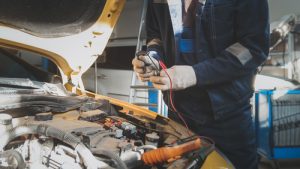 Winter advice for keeping your motor running in the cold
Winter advice for keeping your motor running in the coldWhen it starts to get a little chilly, as it often does in the UK, it’s not uncommon to find your car not running as it should. For things like starter motors, car batteries, and alternators, damp and cold conditions can caused issues.
Battery Problems – The most common fault tends to be the battery. If you hear a faint notice when you try to turn the ignition it could be that you have a flt battery. You might want to check your dashboard lights. If they are not coming on this is a sign that there may be an issue with the battery. To prevent this from happening it may be worth charging your battery
Alternator Problems –If you have a new battery and it keeps going flat, the problem probably lies here. When you jump start your car and the engine dies immediately, this points to a faulty alternator. Another sign with an issue with the alternator is that your dashboard lights and possibly your headlights will flicker. In these situations, it’s recommended to book your vehicle in with an experienced auto electrician. Where electrics are involved it’s always better to be safe than sorry.
Broken Starter Motor – The most obvious sign of a broken starter motor is a clicking sound when you turn the ignition key, followed by the engine refusing to start. You can usually tell if it’s the starter motor rather than the battery at fault if all the lights and in car electrics are working. Similar to the alternator, because you are dealing with electrics, it’s always better to visit a professional auto electrical specialist.
Using the wrong oil – If your oil has too much cold viscosity (resistance to flow), you won’t be able to start your car in cold temperatures. On the flip side, excessive hot viscosity means engine components won’t be adequately protected, leading to premature wear. A good idea here would be to check your car’s handbook to see what type of oil the manufacturer recommends, and switch to a thinner grade if possible in winter. It’s not usually for this simple tip to be the difference between a trip to see your mechanic and keeping your car healthy in the winter months
Find an Auto Electrician near you – If you are experiencing any of these problems or just want to make sure your car is running to its best during the winter, its always recommend that you take your car in to a professional mechanic. If you live in or around Widnes and want to get your car electrics checked out then the team at Widnes Auto Electrical would be more than happy to help.
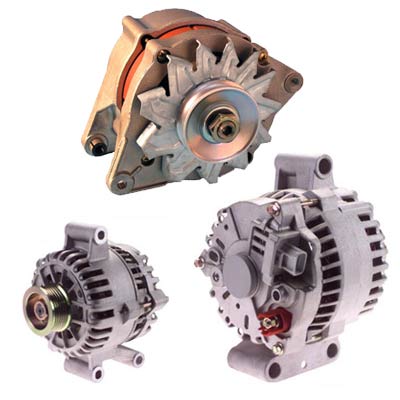 Alternators Liverpool – Having issues with your Alternator?
Alternators Liverpool – Having issues with your Alternator?Are you having problems with your car? Is it struggling to start or not starting at all? Is your battery just not working? We know that a lot of people need consistent maintenance to their vehicles, and that doesn’t fall short in terms of Alternators. That’s why we at Widnes Auto Electrical are here to provide you with all of your needs in regards to Alternators.
The Alternators primary function is to keep your battery charged. As well as that, it also provides your car with all of the means to be able to run things related to electricity. A tip to look out for, is if your starter motor is cranking or turning slowly when you’re starting your vehicle it may be because the voltage in the battery is low and you may need to get the Alternator either repaired or replaced. If you think your car is suffering from this give us a call to discuss it further or pop in and we can quickly perform some tests to find the cause of all your problems.
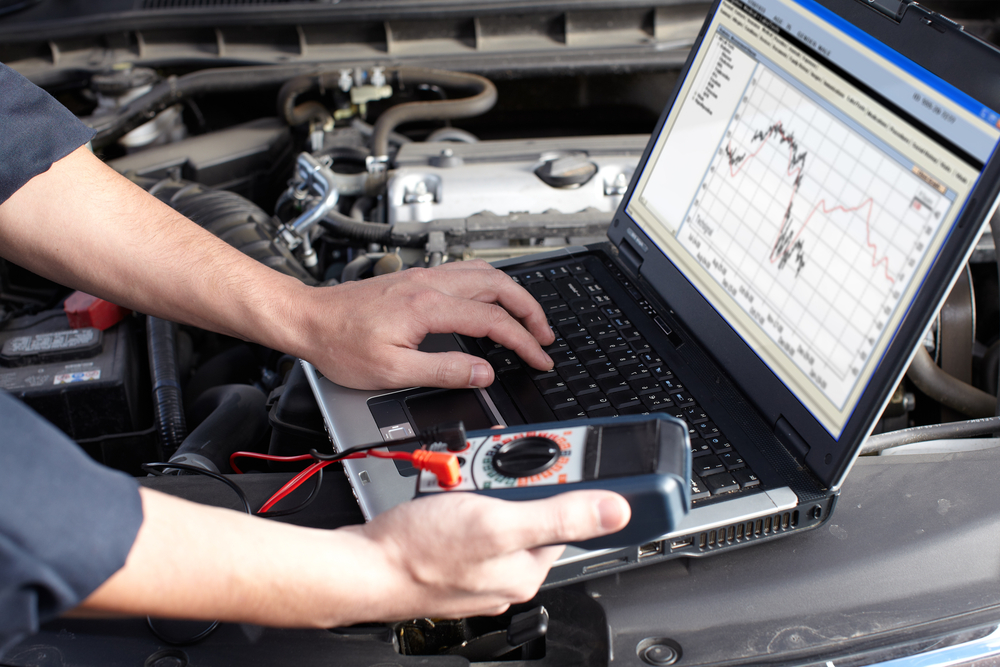 Car Engine Diagnostics Liverpool – Having engine problems? Warning light come on? We’re here to help!
Car Engine Diagnostics Liverpool – Having engine problems? Warning light come on? We’re here to help!Car Engine Diagnostics Liverpool – Has your engine refused to start, misfired or made strange sounds? If you are in Liverpool or near our Engine Diagnostics garage, then why not call in. We have the latest state-of-the-art equipment and specialist tools to accurately diagnose any problem with your engine.
When you experience a problem with your car engine, it usually tells you on the dashboard in the form of a warning light of some kind. If you don’t understand what this means, or maybe you’re not confident enough to try and fix it yourself, then our diagnostics team are at your service.
We are often substantially cheaper than main dealers, yet we provide the highest standard of workmanship and parts. We offer great value! No catches, no small print, no quibbles.
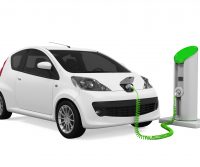
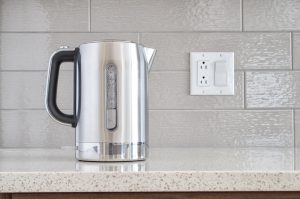 What do you get it you cross an Electric car with a Kettle? You might ask yourself why on earth is a car electrics specialist in Widnes writing an article about crossing an electric car with boiling a Kettle ? Strange you might ask. However, I thought it might be useful for you all to know that, according to the National grid, attempting to boil a kettle whilst charging your electric can could actually blow your fuse!
What do you get it you cross an Electric car with a Kettle? You might ask yourself why on earth is a car electrics specialist in Widnes writing an article about crossing an electric car with boiling a Kettle ? Strange you might ask. However, I thought it might be useful for you all to know that, according to the National grid, attempting to boil a kettle whilst charging your electric can could actually blow your fuse!
A “thought piece” document obtained by the Financial Times – Source – Telegraph warned that if you used household items such as kettles or even electric ovens at the same time as charging your electric car battery would blow the fuse.
“If one were to use an above average power charger, say 11kW, this would require 48 amps. When using such a charger it would mean that you could not use other high demand electrical items… without tripping the house’s main fuse.”
What makes this particularly interesting is that this comes just weeks after the Government announced plans to ban the sale of new diesel and petrol cars by 2040 in a bid to encourage people to buy electric vehicles.
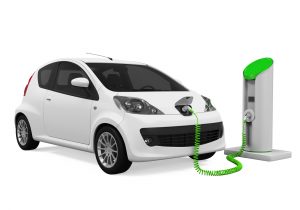 It suggests that the ability to travel longer distances without stopping to recharge will be a “must have” if motorists are to abandon petrol or diesel cars. In order to do this electric cars may well need more and more powerful batteries which, when charging will continue to effect your daily appliance usage.
It suggests that the ability to travel longer distances without stopping to recharge will be a “must have” if motorists are to abandon petrol or diesel cars. In order to do this electric cars may well need more and more powerful batteries which, when charging will continue to effect your daily appliance usage.
So what are the possible solutions? 2 most popular trending suggestions are to build several thousand “super fast” charging forecourts — similar to modern day petrol stations — or “large scale rebuild of the domestic electricity infrastructure” by fitting homes with the maximum 100 amp main fuse. Not sure which is the better option as yet. My thoughts would be that we would all prefer the convenience of charging our cars whilst at home. But the question remains, will we be ready for the next step in the automotive industry.